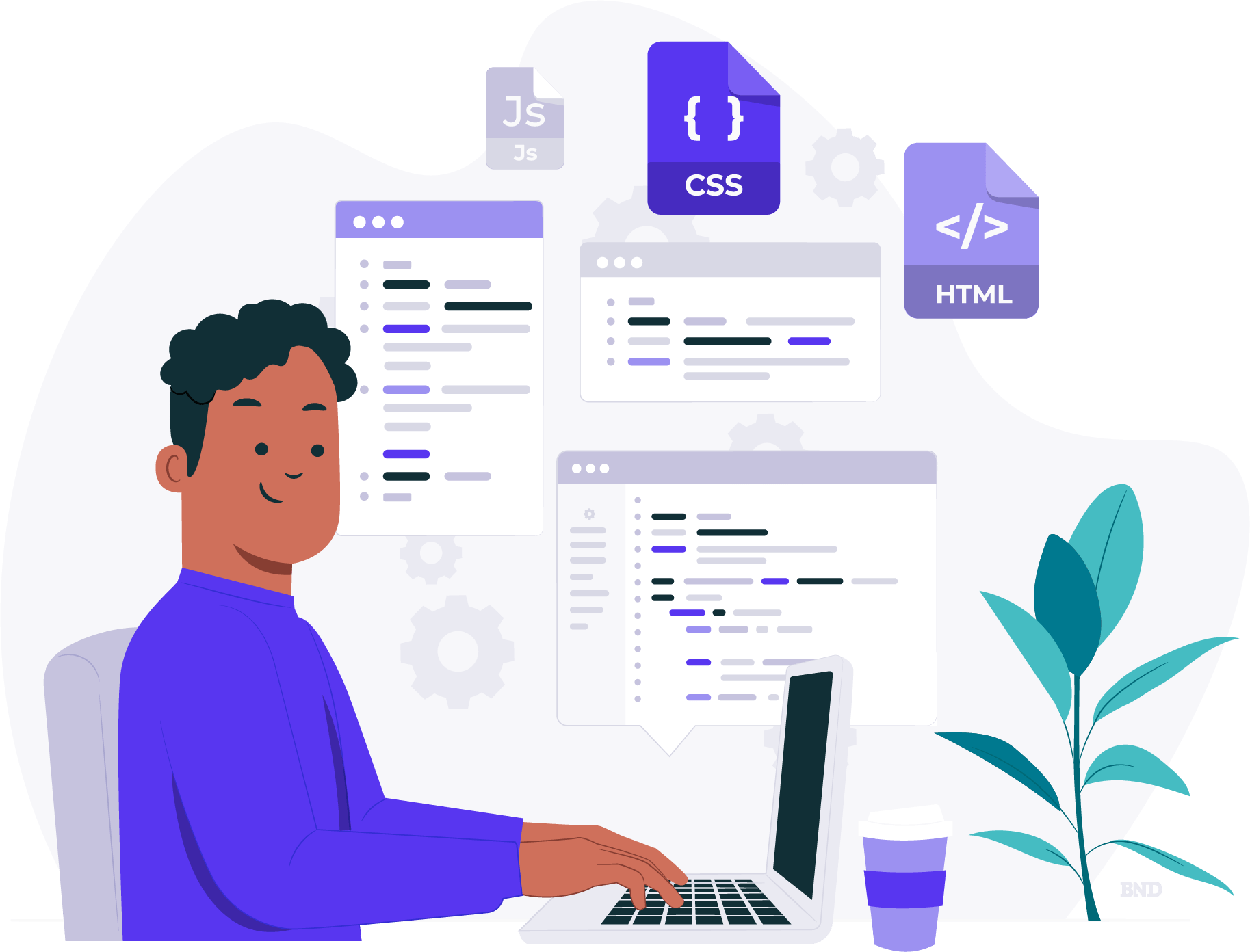- Job flexibility has become an increasingly important priority for job seekers.
- Obtaining job flexibility can be achieved through remote work, flexible work hours and the ability to work for yourself.
- Finding flexible jobs can be challenging, but isn’t an impossible task thanks to a plethora of job board sites and online resources.
- This article is for job seekers looking for a career that offers flexibility.
On the heels of the COVID-19 pandemic and the “great resignation,” finding a flexible job has become a top priority for many job seekers. In fact, some employees would swap pay for a flexible workplace.
With a higher demand for flexible jobs while many companies are pushing workers to return to the office, it can be challenging for job seekers to find positions that offer varying degrees of flexibility. We’ve compiled a list of roles worth considering, along with a few tips on how to score one.
The best jobs for flexibility
In a 2022 McKinsey & Company study, 40 percent of the 13,382 global workers polled stated that workplace flexibility was the No. 1 priority for them. That same year, a Tracking Happiness study found that the ability to work remotely increased happiness by 20 percent. The research also indicated a decrease in happiness once return-to-office policies were set in place.
This data isn’t surprising. Remote work during the pandemic introduced many in the workforce to the benefits of working from home, having flexible hours and, in some cases, becoming your own boss. But amidst an ever-changing job market, finding a flexible job can be a full-time job on its own.
We did some of the legwork for you by compiling the below list of 20 flexible job options. Whether they come with telecommuting arrangements, flexible or part-time schedules, or freelance contracts, these jobs can offer you the flexibility you’re seeking. [Read related article: What the Part-Time Economy Means for Employers]
1. Account executive
Account executives handle many tasks, including building client relationships, identifying new clients and maintaining accounts. Account executives should have negotiation experience, sales skills and strong communication abilities. This position is available in a variety of industries, which means you may be able to find an account executive role that fits well with your personal interests.
As a job that relies on interpersonal communication, it can be accomplished via telecommuting thanks to the advent of programs like Zoom, Microsoft Teams and other communication and collaboration tools. The remote aspects of being an account executive let you live a more flexible lifestyle.
Type of flexibility offered: Telecommuting
2. Communication specialist
A communication specialist works in public relations, marketing or other forms of promotion to increase public awareness about a company or brand regarding its goods or services. They build and maintain relationships between the organization and the media and the public, working to develop communication strategies that complement business plans and the overall company mission. Communication specialists should have an understanding of relationship management, communication expertise and problem-solving skills. In addition, previous experience is often required.
Communication specialists fall under the category of interpersonal jobs that can be done remotely. In addition to the possibility of telecommuting, there are freelance options. For example, you can snag temporary work as a communication specialist if a company has a specific short-term campaign or project that requires extra communication attention.
Types of flexibility offered: Telecommuting, freelance options
3. Customer service representative
Working in customer service is self-explanatory: You respond to inquiries about products and services and handle and resolve complaints. You service a company’s customers. Being a customer service representative requires excellent communication abilities and data-entry skills to be successful. These jobs can be entry level, but companies may require an associate’s or bachelor’s degree or several years of relevant experience. [Check out the best jobs for your college degree.]
Working in customer service offers an array of flexibility options compared to other roles. In fact, the trend toward outsourcing, coupled with the pandemic pushing people to work from home, has made these jobs perfect for remote work. Also, a big portion of these roles are available with larger companies, so a mix of shifts and contract lengths is available. Customer service positions can have full-time and part-time schedules, and they can include temporary or freelance contracts.
Types of flexibility offered: Full-time and part-time schedules, temporary positions, freelance options, telecommuting, and flexible schedules
If you’re a business owner looking for a customer service tool to improve your company, our list of the top customer service programs can help.
4. Dog walker

Dog walking is an interesting job for the pet-friendly job seeker. Dog walkers are hired by dog owners to walk their dogs when they are at work or out of town, so shifts can vary throughout the day. Besides being comfortable around dogs and physically able to walk them, there are typically no formal requirements to be a dog walker. The pay isn’t too lucrative, but with many clients and the help of apps like Rover and Wag!, you can work up to a surprisingly decent wage and build a career.
The appeal of dog walking, besides getting to be around humankind’s best friends, is that you can enjoy a variety of schedules. You have complete flexibility in choosing what days you work, how many hours each day and even the neighborhoods you travel to. If you’d like a little bit of formality and consistency, there are more traditional dog-walking companies to work for that offer full-time and part-time schedules.
Types of flexibility offered: Full-time and part-time schedules, temporary positions, freelance options, and flexible schedules
5. Freelance writer
A freelance writer is hired to deliver a write-up about a requested topic, usually requiring extensive research. Depending on their expertise, freelance writers write content for a variety of clients in different industries. Freelance writers typically need a portfolio of writing samples and strong grammatical skills to successfully book jobs.
The inclusion of the word “freelance” in the job title speaks to its flexibility factor. Most freelance writers are hired on a contract basis and given the freedom to complete the assignment wherever and whenever they want, as long as it’s by the agreed-upon deadline. If you’re experienced enough or have an in-demand expertise, you can even start your own freelance business.
Types of flexibility offered: Freelance options, temporary positions and flexible schedules
Not sure where to start? See where you can find freelance jobs.
6. Gig drivers
Gig drivers refers to freelancers or contractors hired and paid for certain assignments and tasks, as opposed to signing on as an employee in a part-time or full-time position. Such roles can involve services that offer travelers rides to a destination, like Uber and Lyft, or drop-off delivery, like Grubhub and DoorDash. This concept has even evolved to services like Instacart and Shipt, which have gig workers shop for customers and then deliver the goods. These jobs require a reliable vehicle, a license to drive, a smartphone and a clean driving record.
With the gig economy, the biggest appeal is being able to work at your convenience. Companies like Uber let their drivers work at whatever times fit their schedule. This is ideal for people trying to earn a second income or who need a job that matches a specific schedule. However, some delivery companies like Gopuff offer more traditional full-time and part-time scheduling, with set shifts that allow for more stability.
Types of flexibility offered: Freelance options, flexible schedules, and some full-time and part-time schedules
Gig jobs are evolving from temporary side hustles into permanent careers. Studies have shown many people are willing to work gig jobs forever, and the Department of Labor is reconsidering how to classify independent contractors.
7. Graphic designer

A graphic designer is typically tasked with creating branded visual materials that are used by companies internally and externally. Content created by graphic designers can include logos, business cards, advertisements and designs for emails and blogs. Graphic designers are experienced with digital tools like the Adobe Creative Cloud and were either trained in school or have a portfolio showing years of real-world experience.
Independent graphic designers benefit from significant flexibility, provided they can secure enough freelance projects to make a living. Many use sites like Fiverr or Upwork to find clients while charging their own rates and working according to their own schedule. Alternatively, graphic designers can work in-house at an agency, firm or studio, where they have more consistent pay and regular hours.
Types of flexibility offered: Full-time and part-time schedules, temporary positions, freelance options, telecommuting, and flexible schedules
8. Personal trainer
Working as a personal trainer can be a great career choice for people who are passionate about fitness and healthy lifestyles. Personal trainers advise and guide clients on exercising safely and developing healthy routines. The profession typically requires a high school diploma or equivalent in addition to a certification in fitness, nutrition or health. Some personal trainer certifications can take as little as three to four months to complete.
Personal trainers typically work for a gym, which can offer flexible hours and an influx of clients. Once established, personal trainers can take on private clients and charge high hourly rates for their services, working as much or as little as they want. During the pandemic, training people remotely over videoconferencing became more commonplace and is still an option today, making this job even more convenient.
Types of flexibility offered: Full-time and part-time schedules, flexible schedules, freelance options, and telecommuting
9. Photographer
Photographers who can take quality photos are desired in all industries. Whether it’s for fashion, food, travel or weddings, photographers are needed to capture the moment and convey a story for clients. To score work, photographers need a portfolio that showcases their talent and up-to-date equipment to fulfill each job.
With enough experience and a solid portfolio, photographers can consistently book freelance projects. They can specialize in a specific type of photography, like wedding photography, or they can develop a wide variety of photo services. Freelance photographers can enjoy shorter working hours with higher rates, though there are also some opportunities to work full time or part time for a company that requires visual content consistently, like a jewelry store. You also have the option to start your own photography business.
Types of flexibility offered: Freelance options, flexible schedules, full-time and part-time schedules, and temporary options.
10. Plumber

Plumbing is a profession that nearly guarantees employment as long as you do your job well, as the demand for plumbing services isn’t going away anytime soon. Plumbers need to complete vocational training, followed by an apprenticeship. While aspiring plumbers learn the trade and prepare to get their license, they can work under the supervision of a licensed plumber to gain experience and expertise.
The benefits of becoming a plumber include job flexibility, stability and high earning potential. Plumbing is not limited to a specific area and can bring in continued business regardless of where you live. Once licensed, plumbers can work independently or for a specific client or business. If working independently, they have the freedom to choose their own hours and set competitive rates. Note, however, that some plumbers need to be on call in case of emergencies, which may interrupt your work-life balance.
Types of flexibility offered: Full-time and part-time schedules, freelance options, and temporary options
11. Project manager
A project manager is someone responsible for the day-to-day management of a particular initiative. They can be viewed as the CEO or boss of a temporary team, and such positions can be found in a multitude of industries. Project managers initiate and drive projects, making sure each team member involved is on pace to get their work done. Typically, project managers need to have interpersonal and critical thinking skills and be meticulous with details. They almost always have a college degree, which is often enhanced with a slew of project management certifications.
As a project manager, you get the benefit of being in demand across many industries and businesses of all sizes. You can work with a big company or be a crucial part of a startup. This gives you the option of working traditional full-time schedules, short-term or long-term contracts, freelance, or as a consultant. If the team you’re managing is well equipped to be overseen remotely, you can telecommute.
Types of flexibility offered: Full-time and part-time schedules, freelance options, telecommuting, and temporary options
12. Recruiter
Recruiters are responsible for hiring new workers for a particular company. They screen, interview and hire employees or get candidates into a business’s recruitment pipeline. People well suited for this role have strong interpersonal skills and may have a human resources degree.
Recruiters can enjoy a plethora of flexible work options. They can work part time or full time and, when serving as a contracted third-party recruiter, set their own hours. Recruiters can be paid a fixed rate or, in some cases, make their income based on commissions. Since almost all recruiting is done virtually today, they can telecommute.
Types of job flexibility offered: Full-time or part-time hours, flexible schedules, telecommuting, freelance options, and temporary options
Wondering what the future of recruiting will look like? Expect an increased use of artificial intelligence tools and online personality surveys.
13. Sales representative

A sales representative sells a company’s products and services to potential clients. They identify the target audience’s needs, write sales reports and work to close sales by convincing customers to go with this particular business. They need to have great negotiation, critical thinking and people skills. Sales representatives don’t usually need a college degree, but in certain industries, having a related degree may help you get hired.
Sales reps often have flexible work options. It isn’t uncommon to work part time or full time or on a contract basis. You may have a base salary plus commission or solely work off commission, in which case you need to work only as much as you want to earn. While it used to be common for salespeople to travel to clients, many sales meetings these days take place over video calls. [Get business etiquette tips for client meetings.]
Types of job flexibility offered: Full-time or part-time hours, flexible schedules, telecommuting, freelance options, and temporary options
Participating in sales training programs can help you close more deals, as can using some of the best sales software.
14. SEO Specialist
SEO specialists study, analyze and work to improve a company or brand’s search rankings, also known as search engine optimization. They use programs like Google Ad Manager and Google Analytics, along with a variety of other software, to impact search results on a business’s behalf. SEO specialists typically either have a degree or relevant certifications and experience managing SEO.
With the main responsibilities of an SEO specialist focused on analyzing website content and search engine positioning, they can achieve significant flexibility in terms of where they work. As long as there is access to a secure internet connection, telecommuting shouldn’t be a problem at all. Additionally, these roles can be freelance and contract-based, so you have control over how many hours you work.
Types of job flexibility offered: Full-time and part-time schedules, freelance options, flexible schedules, telecommuting options, and temporary options
15. Social media manager
Social media managers create, plan and manage the social media presence of a company, organization or brand. They pull a variety of metrics from either the social media platforms themselves or using third-party software like Hootsuite to analyze social performance and make any necessary improvements. Social media managers typically need a bachelor’s degree, but training certificates plus significant work experience could get you hired.
With social media management requiring research, interpersonal communication and significant time online, the position is primed for remote work and flexible scheduling. Every company today benefits from a strong social media presence, so this is an in-demand role. Whether working in-house or freelance, social media managers can find the right work arrangement for their lifestyle.
Types of flexibility offered: Full-time and part-time schedules, telecommuting, freelance options, and temporary roles
Our small business guide to social media dives deep into using social platforms for marketing, customer service and more.
16. Software developer

Software developers, in the simplest terms, create software and applications for computers. Their day-to-day includes planning, writing, developing, testing and maintaining programs used in the daily operations of a company. Usually, software developers have degrees in computer science or information technology and knowledge of various programming languages. They’re adept at critical thinking and logical conceptualization, aided by mathematical behavior. Becoming a software developer can be achieved by taking short-term training programs, earning certifications and gaining real-life experience.
Software developers are typically in high demand, giving them work flexibility. In addition to being salaried as a full-time or part-time employee, they can work contracted and freelance for multiple clients. Of course, with this role being computer-focused, telecommuting and remote work are extremely feasible, though this kind of work may be time-intensive.
Types of flexibility offered: Full-time and part-time schedules, telecommuting, freelance options, and temporary roles
17. Translator
Translators are people who are bilingual or multilingual that work to accurately convert writing or recorded conversations from one language to another. Their skills are transferable to different industries, as translators can work in legal, scientific, educational and consumer workplaces. Translators must obviously have strong language comprehension, as their duties are to create an accurate and readable translation of text. While the most important requirement is a high level of reading, writing and foreign language skills, translators may also need a degree or certifications in their specific languages.
With many industries requiring translation, working as a translator provides plenty of employment options. You can be hired on a full-time or part-time basis with a company that constantly has information that needs to be translated, or work freelance with organizations on a short-term basis. Telecommuting is typically available, as the material to be translated rarely requires in-person assistance (unlike serving as an interpreter).
Types of flexibility offered: Full-time and part-time schedules, telecommuting, freelance options, and temporary roles
Businesses use translation services when working with markets that don’t share the same language.
18. Tutor
A tutor is an educator responsible for providing one-on-one or class-based aid to students needing additional teaching. Tutors typically specialize in one subject, and they review a student’s work and assess their learning style to find the best educational solution. Tutors must have interpersonal skills to connect with students, and their communication skills need to be honed to translate difficult concepts into digestible lessons for young minds. Tutors can have a degree in the subject they’re teaching, but they can also establish themselves by gaining experience and certifications.
In years past, tutors worked on-site with students, but the pandemic has shaken up traditional learning structures. Sessions can now be completed on Zoom and with online learning platforms. Tutors can build their own clientele for a flexible remote freelance career or work full or part time for an in-person or virtual learning center.
Types of flexibility offered: Full-time and part-time schedules, telecommuting, freelance options, and temporary roles
19. Virtual assistant

A virtual assistant is an assistant who isn’t situated on-site. While working remotely, they are responsible for providing administrative services for a company or organization, completing tasks like answering phone calls, entering data and scheduling meetings. Their duties can vary, depending on the client, and the position requires strong interpersonal skills, a detail-oriented mindset and robust organizational skills. Virtual assistants usually don’t need a college degree, but candidates with experience or specific certifications are likely to stand out.
Though present before the pandemic, virtual assistants exploded in demand over the last few years. As the market settles with the ongoing return-to-office push, there are still opportunities to work virtually as a receptionist or executive assistant, giving you the flexibility to work from home. Businesses mostly look for full-time assistants, but there are options for part-time, contract and freelance positions.
Types of flexibility offered: Full-time and part-time schedules, telecommuting, temporary roles, and freelance options
20. Web developer
Web developer is an umbrella term that covers people who do front-end, back-end and full-stack development to build websites. They typically know a variety of coding languages, such as JavaScript, HTML5, PHP and Rails. These roles require critical thinking skills and a detail-oriented mindset to ensure all codes are functioning smoothly. You’ll want to have a computer science degree or certifications and significant experience.
Few businesses today can succeed without a website, and as such, web developers are in demand. They can work for a single company or agency, or opt to go the freelance route and contract with multiple clients. Because this is a web-based profession, the ability to telecommute and work remotely is usually a given, though many hours may be required.
Types of flexibility offered: Full-time and part-time schedules, telecommuting, short- and long-term projects, freelance options, and temporary roles
Tips for finding a flexible job
Thankfully, finding a flexible job is easier today than ever before. Here are a few strategies:
- Use job networking sites, like LinkedIn and its alternatives, that allow you to search for job openings with a filter set for remote or contract work.
- Seize freelance opportunities on work marketplace sites like Upwork and Fiverr.
- List your services in online community directories and industry-specific databases.
- Offer referral discounts in which you give existing clients a rate cut if they refer you to additional customers.
- Join in-person meetup groups where you can share the services you provide with people in your area.
- Create a personal branded website to showcase your skills, resume, portfolio and client testimonials, and share the website link on social media platforms and forums.
You can set yourself apart on LinkedIn by using these job-hunting tactics.
Your work flexibility future
With the job market resetting after a substantial shift toward remote work, no one can be certain where things will stand five years from now. However, if having a flexible job is a current priority, the above roles – along with these home-based business ideas – are some of the best options available today. Keep in mind that the more skilled and experienced you are, the more you’ll be able to make the case that you’re worth hiring under flexible circumstances. Soon you’ll be on your way to a better work-life balance.
Read the full article here










